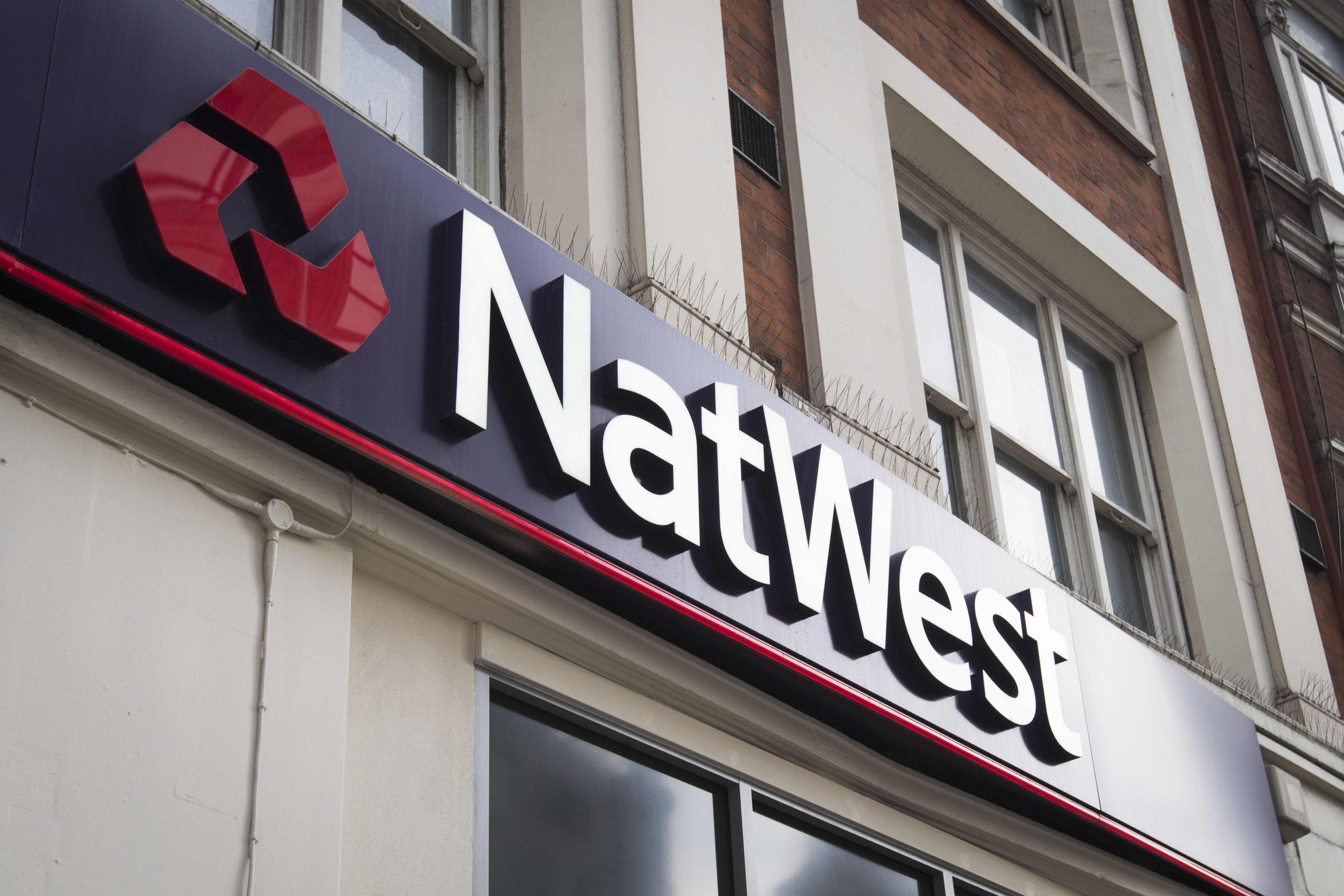NatWest’s thumping profits can’t be justified: it’s time politicians got tough
In banking terms, NatWest’s leadership did a great job. But as the Farage row shows, they have a long way to go when it comes to making excuses for bad behaviour, writes Chris Blackhurst


Ordinarily, this would have been a day of satisfaction for Sir Howard Davies, chair of NatWest, and the bank’s chief executive Dame Alison Rose.
They wouldn’t do triumphalism – their PRs would have said to tone it down – but producing results ahead of City expectations is always a cause for celebration. Second-quarter revenues were up 20 per cent to £3.9bn, when the analysts were predicting £3.7bn. Profits did even better, increasing 26 per cent to £1.8bn, nicely ahead of the forecast £1.5bn.
Dame Alison, though, was not present to talk through the bank’s performance – she’d gone, a victim of the row about the closure of Nigel Farage’s account at NatWest’s Coutts subsidiary. The focus of the interest, too, was on that debacle, with the focus turning to Davies’s future.
What never ceases to amaze is how intelligent people – and bankers like to suppose they’re in the super-intelligent category – manage to get it so wrong. How they fail to read the national, public mood. How they may have stellar IQs, but are woefully deficient in the EQ – empathetic quotient – department.
So, in unveiling the figures, Davies announced he’d appointed an external law firm, Travers Smith, to conduct an independent review into the affair. What for? What bit of cack-handedness, arrogance, hubris – take your pick – does he not understand? Why should shareholders’ money – and NatWest is nearly 40 per cent owned by the taxpayer – be wasted in such a fashion?
Travers Smith is a bunch of solicitors (and expensive ones at that). Doubtless they know the legal ins and outs backwards. But the Farage farrago – certainly the part that did for Dame Alison – was more down to bad communications and appalling crisis management than the law.
What it was ultimately about was a bank, Coutts, which suffered a fit of woke and decided it no longer wished to have the ex-Ukip leader as a client. It didn’t like his views, not just in relation to the EU but on immigration and other topics – that was clear from the 40-page dossier they prepared on him. An institution that relied upon, and placed great store by, its exclusivity was undone by an attempt at inclusivity.
It’s hard to see what light Travers Smith will shed on what Coutts’s bosses should have known from the off: that Farage would never go quietly and that, as part of his fightback, he would file a formal subject access request, requiring the bank to hand over the report on him.
Likewise, you don’t require a law degree to conclude that Dame Alison broke the rule on banking confidentiality when she held a conversation with a BBC reporter, after which he was in the firm belief it wasn’t Farage’s ideology that scuppered him but something else – namely his financial wherewithal.
No, what is really occurring here is that Davies is taking the time-honoured Whitehall approach, which is that if you’re in a crisis, you should hold an inquiry. You’re seen to be taking action and the effect of parking it – sorry, calling in outside experts – is that while they’re doing their stuff you can maintain a wall of silence, saying you don’t want to prejudice their efforts. It’s brilliant – the smartest weapon in the Sir Humphrey arsenal of taking the sting out of a fast-developing, increasingly awkward situation.
Davies is going anyway in July 2024. A search for his successor is already under way, so the poison is weakened still further.
That person will inherit an organisation in decent fettle. If anything, it is marginally outshining its closest rivals, Barclays and Lloyds. Like Barclays, NatWest is buying back its shares – in NatWest’s case, £500m worth. It’s also making an interim dividend of 5.5p per share – well ahead of the dividend for the same period last year.
It’s a bank that has got plenty of money – so much so it can pay some out to its investors. It’s been benefitting from rising interest rates. Meanwhile, its ordinary customers – not Farage and, presumably, not that many of its well-heeled Coutts clients – are struggling under the weight of increased mortgage costs and household inflation.
The City likes what it’s seeing – unlike the share prices of Barclays and Lloyds, that of NatWest actually rose on the back of these numbers. It was a welcome change after the shares fell during the Farage fiasco.
The wider issue is whether banks can justify these sorts of profit levels. The government, of course, as 39 per cent owner of NatWest, is sharing in its success. But that was only because the banking crisis of 2008, caused by greed and recklessness, forced a taxpayer-funded emergency rescue.
The answer is that no they cannot. Effectively they’re a utility – it’s impossible to survive in today’s world without a bank account and access to financial services. They deny so, but that is what they are. That means politicians ought to get tough with them, same as they do (or threaten to do) with the water and energy suppliers.
Banks always prosper disproportionately when interest rates rise. That’s because the difference between what they charge borrowers versus what they pay depositors widens. Their borrowing rates change more quickly, tracking the official Bank of England rate, whereas they’re slower to reciprocate for savers.
That should change. It might be something that Labour could and should make a lot of noise about and will receive a warm reaction. It’s harder for the Tories as the traditional friend of big business, of the City and therefore banks, to make the same argument.
There’s no doubt that in terms of pure banking, Dame Alison did a sound job. But to say that Dame Alison was bullied and treated differently because she was that rarity of a female chief in UK banking misses the point. She went because she discussed a client’s private financial affairs with a journalist.
To compound her error, when the BBC called back and asked if it was OK to publish what she’d said, someone – Dame Alison or one of her colleagues – said it was. So, they had their chance to repair the mistake and they didn’t. If that person who gave the go-ahead was not Dame Alison, it does not matter – she was the chief executive of a firm that was playing fast and loose with client information, and the buck stopped with her.
It’s true, as is being pointed out in her defence, that male senior bankers have committed worse and not lost their jobs. But this should not wash – using lack of action against bankers as a reason to take no action against her has an uncomfortable ring. More acceptable would be to draw a line under Dame Alison and say that from now on, senior bankers, regardless of gender, cannot get away with transgressing.
We have no choice other than to tolerate their thumping profits, but at the very least in return, they can cease excusing poor behaviour.
Chris Blackhurst is the author of ‘Too Big to Jail: Inside HSBC, the Mexican Drug Cartels and the Greatest Banking Scandal of the Century’ (Macmillan)
Join our commenting forum
Join thought-provoking conversations, follow other Independent readers and see their replies
Comments


Bookmark popover
Removed from bookmarks